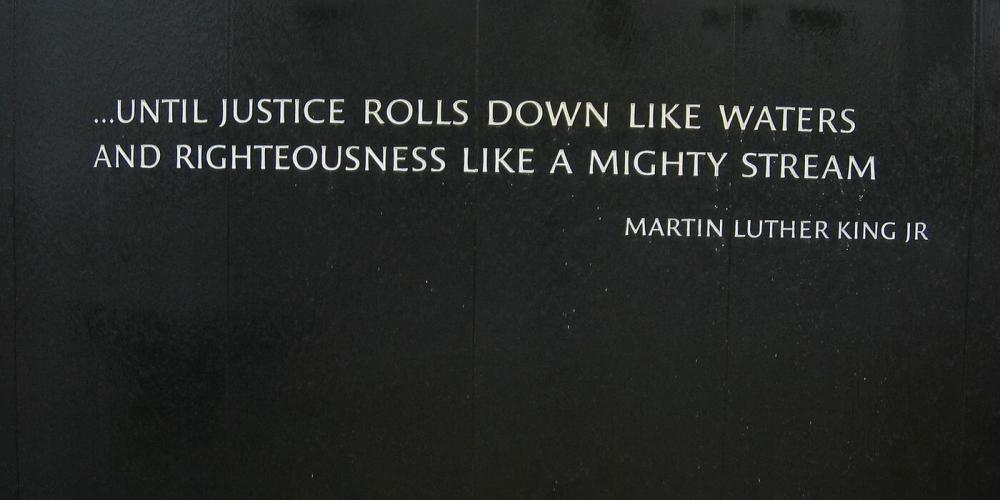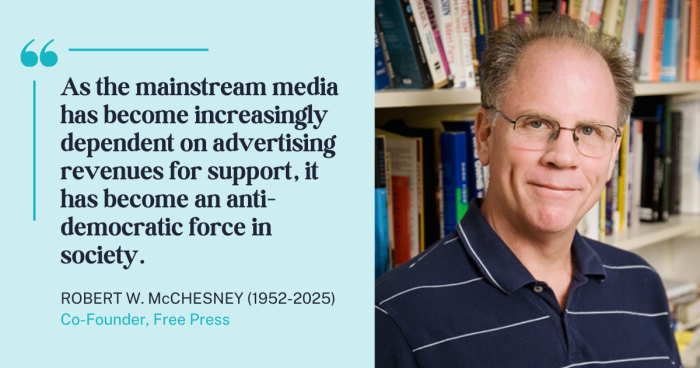The Legacy of the FBI's Racist Campaign Against MLK

Today, as we honor Dr. Martin Luther King Jr., who fought to dismantle structural racism and white supremacy, we must reject how the media and others have sanitized his legacy.
Dr. King was a radical proponent of structural change and his work remains critical in the struggle for liberation.
Sanitizing Dr. King’s legacy is a deliberate act. It erases what he fought for — racial and economic equality, and the end to an unjust war — and obscures the U.S. government’s campaign to destroy him and undermine the civil-rights movement.
Dr. King’s vision of a wholly transformed society
On Martin Luther King Day, news outlets routinely run footage of Dr. King’s iconic “I Have a Dream” speech from the 1963 March on Washington without acknowledging its broader context.
“Relatively few people know or recall that the Kennedy administration tried to get organizers to call it off; that the FBI tried to dissuade people from coming; that racist senators tried to discredit the leaders; that twice as many Americans had an unfavorable view of the march as a favorable one,” writes historian Gary Younge.
After the Civil Rights Act and the Voting Rights Act were respectively signed into law in 1964 and 1965, Dr. King became an outspoken opponent of the Vietnam War. He also argued that “the problems of racial and economic injustice cannot be solved without a radical redistribution of political and economic power.” These positions led to the erosion of his support among many former white allies, something King himself critiqued in his 1967 book Where Do We Go From Here: Chaos or Community?:
“For the vast majority of white Americans, the past decade — the first phase — had been a struggle to treat the Negro with a degree of decency, not of equality. White America was ready to demand that the Negro should be spared the lash of brutality and coarse degradation, but it had never been truly committed to helping him out of poverty, exploitation or all forms of discrimination.”
Mainstream-media outlets don’t want to acknowledge how truly radical Dr. King’s aims were. And they definitely don’t want to acknowledge the connections between the surveillance regime that targeted King and the one seeking to undermine racial-justice activists today.
The racist underpinnings of government surveillance
The FBI believed Dr. King was the “most dangerous and effective Negro leader in the country”. The Bureau was obsessed with destroying him and even sent him an anonymous letter urging him to kill himself. This was just one of the many vicious tactics the FBI used in its coordinated surveillance campaign against King and other civil-rights leaders.
The FBI’s infamous COINTELPRO program has gone down in history as a shameful and violent effort to undermine the civil-rights movement and its leaders. The program involved surveillance, infiltration, psychological warfare, harassment and manipulation.
The FBI’s racist approach to surveillance has never gone away. After police murdered Michael Brown in 2014, the Bureau began identifying Black-led protests against police brutality as domestic terrorist threats and labeling participants as “Black Identity Extremists”.
Documents leaked last August showed that the FBI is using undercover agents to surveil Black activists in a program called Iron Fist. It’s telling that the documents don’t cite any actual criminal behavior from members of racial-justice groups.
Meanwhile, white-supremacist violence has skyrocketed in the last decade and claimed people’s lives in one mass shooting after another. From the Charleston, South Carolina church massacre to the murders at multiple synagogues to the slaughter targeting Latinx people in El Paso, Texas, far-right extremists have been responsible for most of the ideological killings in America in the last 10 years. But the FBI and other government agencies have regularly denied that white supremacy is the face of U.S. domestic terrorism.
We must draw on Dr. King’s legacy to continue the fight for racial and economic justice and shed light on the ongoing threat of racist surveillance in this country. In 2020, surveillance tools are far more sophisticated than what was available during Dr. King’s lifetime, but the aims remain the same: to disrupt efforts to achieve justice in the United States.





